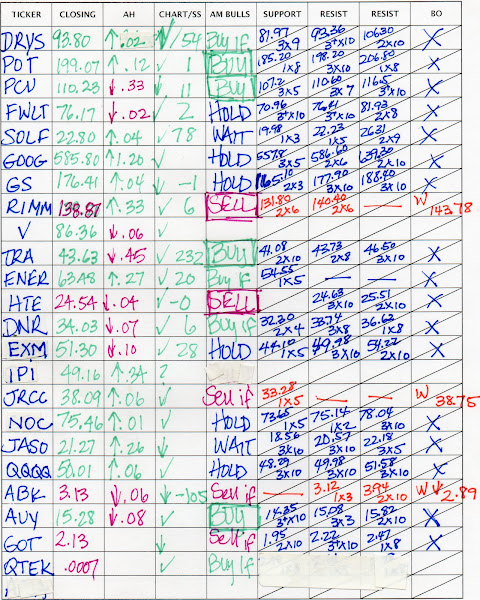The annual revamping of the key Russell indexes at the end of the month could lead to a hectic shuffling of stocks by big investment firms.
May 31, 2008: 11:07 AM EDT
NEW YORK (AP) -- "The whole month of June is kind of a magic month."
Citi Investment Research equity strategist Lori Calvasina wasn't referring to weddings, graduations or wildflowers blooming. She was talking about the stock trading that will take place in the next few weeks in anticipation of the annual reconstitution of Russell Investment's indexes.
It may seem like a wonkish matter that few individuals would pay attention to, but the reshuffling of the stocks that make up Russell's indexes, including the widely followed Russell 2000 index of small companies, will have a big impact on stock and mutual fund holdings.
"Your benchmark index is going to change," Calvasina explained. Those changes will affect some $4.4 trillion in assets that Russell says is tied to one of its indexes, which were launched in 1984.
Citi estimates there were 120 funds passively linked to Russell's 26 U.S. indexes as of Dec. 31, holding nearly $535 billion in assets -- nearly five times as much as such funds held in 1999. Morningstar Inc. says there are 20 Russell 2000 index funds alone, among 246 that use the small-cap list as a gauge for their performance.
The managers of all those funds will have to adjust their holdings to follow the new lineup in the indexes. But before that happens, hedge funds and others will try to take advantage of the changes.
"Hedge funds are going to try to game this," Calvasina said. "To a certain extent it's already been happening."
Wall Street analysts have been pumping out notes on a near-daily basis with their educated guesses for which stocks will be added, deleted or moved between indexes.
They are able to come up with fairly accurate lists, because Russell makes its methods for picking the stocks in its index public, unlike, for instance, Standard & Poor's, which uses a committee system to develop its S&P 500 and other indexes.
Here's how it works: At the close of Friday's trading, Russell Investments will take the first step of the reconstitution by taking a "snapshot" of approximately 13,000 stocks traded on U.S. exchanges.
It ranks the companies from largest to smallest, and filters out those that don't meet its criteria, including companies not based in the U.S., stocks that trade below $1 or those that trade over the counter, or on what are called the Pink Sheets, which do not need to meet minimum requirements or file with the Securities and Exchange Commission.
After factoring in a few other matters, the largest 4,000 companies are picked to be part of the Russell 3000E Index, which represents approximately 99 percent of the U.S. equity market. All its other indexes are subsets of this master list; for instance, the biggest companies become part of the large-cap Russell 1000, while Nos. 1001 through 3000 make up the Russell 2000.
The Russell 2000, has had a difficult year, falling about 12 percent since 2007's reconstitution. One reason has been the overall weak market performance, especially in financial stocks, which at 20.6 percent make up the single largest sector in the index.
With so many stocks falling, one sure thing is that the market value of the companies that make up the small-cap index will be smaller than last year.
Melissa Roberts, senior vice president of quantitative research at Keefe, Bruyette & Woods, estimates the market caps of the new stocks in the Russell 2000 will range between $165 million and $2 billion, a dramatic fall from the $261 million to $2.5 billion range last year.
She said that along with market weakness, the big decline reflects a large number of companies that were dropped from the list in the past year due to buyouts and delistings, and some changes Russell made to its methods for including stocks.
Overall, she expects 312 new companies will be added to the small-cap index, including 42 companies dropping down from the large-cap list. Keith Miller at Citi put his estimates at a total of 307 additions, with 40 stocks falling from the 1000 to the 2000.
Because analysts and others can be so specific ahead of the actual reconstitution, the stocks in question could see some hectic trading in the coming weeks before the final lists for 2008 are released June 27.
Find this article at:
http://money.cnn.com/2008/05/31/markets/bc.na.fin.mkt.us.wallst.ap/index.htm
Always perform your own due diligence before making any investment.
Saturday, May 31, 2008
CNN: June could be crazy month for stocks
Subscribe to:
Post Comments (Atom)


No comments:
Post a Comment